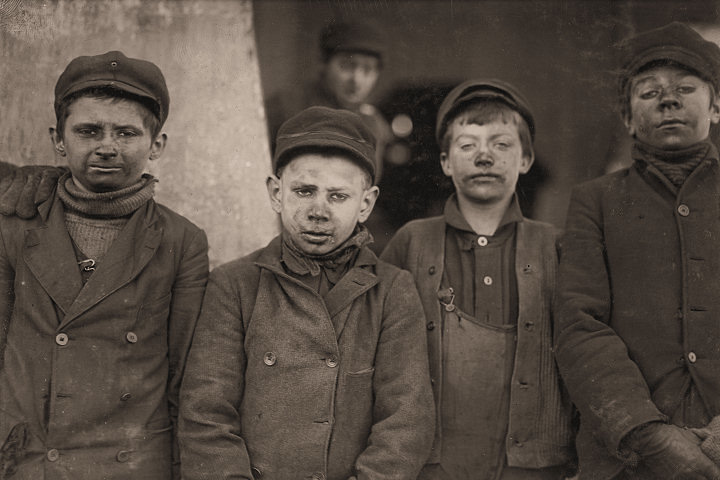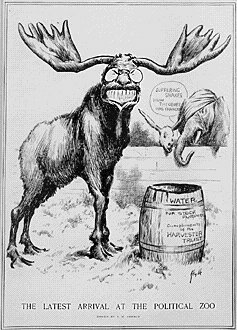Introduction

A period of reform known as the Progressive Era took shape in the late 1800's. During this time, Americans worked to fight corruption in government, reduce the power of big business, and improve society. This webquest will show students the glaring problems created during the Industrial Revolution and how they were addressed during the Progressive Era. In addition, students will analyze primary sources from the time period to gain further understanding.
Have you ever heard the saying, "A picture is worth a thousand words"? Have you ever read a book that gave you chills or made your stomach turn? This webquest contains photographs, book excerpts, quotes, and tours about the Progressive Era that will affect you senses for sure!
Task
Within your groups, you have been assigned a certain muckraker or issue to research during the Progressive Era. It is your job to research your particular issue by analyzing primary sources and completing a worksheet. By looking at photographs, reading first hand accounts, and participating in on-line tours, you will better understand the problems progressives tried to fix. Once you have completed your assignment, you will return to your group and educate your classmates about your particular subject. You can use your worksheet as a guide, and your group members should take notes. If time permits, you can go back and look at other issues researched in your group on the webquest.
For Homework:
Decide which issue was the most pressing of the time period. What problem should have been made a priority, dealt with first, or demanded the most attention? Why? Are there any present day problems you feel demand the same attention? What was your overall impression of this assignment? Suggestions? Comments? Reflections? Minimum one page.
Process

For background information please read the "Progressive Party Principles" section contained in the link below
PROGRESSIVE PARTY PLATFORM
http://www.pbs.org/wgbh/amex/presidents/26_t_roosevelt/psources/ps_trprogress.html
You've been assigned a specific person or issue to research during this webquest. Access the links to your specific journalist or issue below, and follow the directions on you handout.
LIVING CONDITIONS
http://www.digitalhistory.uh.edu/historyonline/us28.cfm
Read section labeled "The Rise of the City"
http://www.tenement.org/tours.html
1. Select the "Play" section of the title bar
2. Select "Virtual Tenement"
3. Click the "Enter Here" icon on the picture
4. Go to the drop down bar (upper right hand corner) and take tours of the various family apartments. Be sure to READ the information on each page in addtion to looking at the dwelling.
JACOB RIIS
Read excerpt from "How the Other Half Lives"
http://www.eduplace.com/ss/hmss/8/unit/act6.1blm1.html
Riis Photos
http://www.masters-of-photography.com/R/riis/riis.html
UPTON SINCLAIR
Excerpt from "The Jungle"
http://historymatters.gmu.edu/d/5727/
Photos
http://www.solpass.org/7ss/Images/meatstoragechicago.jpg
http://upload.wikimedia.org/wikipedia/commons/5/52/Chicago_meat_inspection_swift_co_1906.jpg
http://i154.photobucket.com/albums/s252/UptownRising/Livestock_chicago_1947.jpg
LEWIS HINE
Read excerpt about child labor
http://ehistory.osu.edu/osu/mmh/gildedage/content/LifeofaCoalMiner.cfm
Hine's Photos
http://www.masters-of-photography.com/H/hine/hine_climbing.html
http://www.historyplace.com/unitedstates/childlabor/index.html
Evaluation
Conclusion
This webquest has shown students the glaring problems created by industrialization. By analyzing primary photographs and accounts students better understand what working and living condidtions, as well as big businesses, were like around the turn of the century. By looking at our past, we can truly understand how far we have come.